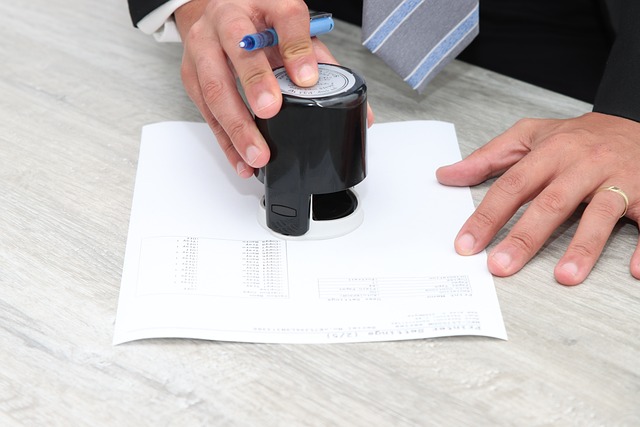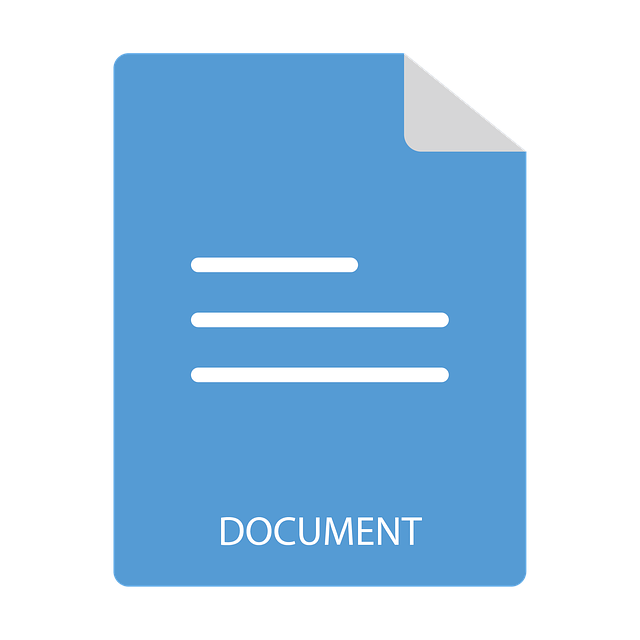UK Intellectual Property Documents translation services are critical for businesses and creators dealing with patents, trademarks, and copyrights, ensuring precise and legally compliant translations that facilitate the accurate communication of IP rights across linguistic borders. These specialized services cater to the nuanced needs of the IP sector, preserving both legal implications and original meanings in translations, especially when engaging with international parties or seeking foreign jurisdiction protection. Certified translations by professionals recognized by bodies like the ITI or CIOL are essential for compliance with UK laws and for bolstering the credibility of IP applications on a global scale. These services maintain exactness to uphold the integrity and enforceability of IP rights internationally, while also being well-versed in international standards and regulations to ensure translated documents remain valid across various jurisdictions. The use of these UK translation services is indispensable for businesses seeking to protect their intellectual property assets effectively on an international level.
When venturing into the global marketplace, safeguarding your intellectual property (IP) is paramount. This article delves into the critical role of certified translations in securing patents, trademarks, and copyrights within the UK framework. We explore the necessity for precise translations to navigate international IP laws and how UK Intellectual Property Documents translation services are indispensable for businesses aiming to expand globally. Furthermore, we outline the legal requirements and best practices for selecting a trustworthy translation service to ensure your IP rights are accurately represented in any language. With insightful case studies highlighting successful international IP strategies, this article is an essential guide for any company looking to traverse linguistic barriers with their IP assets.
- Understanding the Necessity for Certified Translations of IP Documents in the UK
- The Role of UK Intellectual Property Documents Translation Services in Global Expansion
- Navigating the Legal Requirements for Patent, Trademark, and Copyright Translations
- Best Practices for Selecting a Reliable Translation Service for IP Documents
- Case Studies: Successful International IP Strategies Facilitated by Certified Translations
Understanding the Necessity for Certified Translations of IP Documents in the UK

When intellectual property (IP) is at stake, precision and legal compliance are paramount. In the UK, where innovation and creativity are pivotal to economic success, protecting IP through certified translations is not just a formality but a critical step for entities dealing with patents, trademarks, and copyrights. The UK Intellectual Property Documents translation services cater to the nuanced demands of this sector, ensuring that the true meaning and legal implications of the original documents are accurately conveyed in another language. This is particularly important when engaging with international stakeholders or filing for protection in jurisdictions where English is not the official language. Certified translations provide assurance that the translated content meets both linguistic and legal standards, thereby facilitating effective communication and safeguarding the rights associated with IP assets.
The UK’s robust legal framework requires that all foreign documents, particularly those pertaining to IP, be accompanied by certified translations for official proceedings. These translations must be executed by a professional translator who is accredited by relevant authorities, such as the Institute of Translation and Interpreting (ITI) or the Chartered Institute of Linguists (CIOL). This certification validates that the translation is complete, accurate, and reliable. Utilizing UK Intellectual Property Documents translation services ensures compliance with the UK’s legal requirements and enhances the credibility of IP applications, thereby protecting the interests of inventors, creators, and businesses in a global marketplace.
The Role of UK Intellectual Property Documents Translation Services in Global Expansion

UK intellectual property documents translation services play a pivotal role in facilitating the international expansion of businesses holding patents, trademarks, and copyrights. These specialized services ensure that the complex technical language inherent in IP documentation is accurately conveyed across linguistic barriers, enabling companies to navigate foreign markets with clarity and confidence. The precision of translation is paramount; a single misinterpretation could lead to legal complications or a loss of intellectual property rights. By providing precise translations, these services help protect the integrity and enforceability of IP rights on a global scale. Furthermore, UK intellectual property documents translation services are adept at adhering to international standards and regulations, which is crucial for maintaining the validity and recognition of patents, trademarks, and copyrights across different jurisdictions. This not only safeguards the original inventor’s or creator’s rights but also ensures that the translated documents meet the legal requirements necessary for registration and protection in each target country. Thus, these translation services are instrumental in the strategic internationalization of IP assets, providing businesses with a competitive edge in the global marketplace.
Navigating the Legal Requirements for Patent, Trademark, and Copyright Translations

When it comes to translating intellectual property documents such as patents, trademarks, and copyrights, accuracy and legal compliance are paramount. These documents are critical for protecting inventions, brands, and original works, and their translations must withstand the scrutiny of legal systems across different jurisdictions. In the UK, Intellectual Property (IP) Documents translation services play a crucial role in ensuring that these materials are accurately conveyed in the target language. These specialized services understand the nuances of both source and target languages and the importance of adhering to the stringent standards required by UK IP law. They provide translations that not only maintain the original meaning but also comply with the legal formalities necessary for patent offices, trademark registries, and copyright entities. This ensures that the translations are legally recognized and enforceable, facilitating smooth international operations for IP holders.
Navigating the legal landscape of patent, trademark, and copyright translation requires expertise not only in linguistics but also in the intricacies of UK IP law. Translation services specializing in these areas offer certified translations that meet the specific requirements set forth by the Intellectual Property Office (IPO) and other relevant UK authorities. These translations are often accompanied by a declaration or statement of accuracy, attesting to the fidelity of the translation and its representation of the original document. This level of professionalism and adherence to legal standards is essential for the effective protection and enforcement of IP rights on an international scale.
Best Practices for Selecting a Reliable Translation Service for IP Documents

When engaging with UK Intellectual Property Documents translation services for patents, trademarks, and copyrights, it is imperative to select a provider that boasts a sterling reputation for accuracy and industry-specific expertise. A reliable service should possess a deep understanding of the nuances inherent in intellectual property law, as well as the technical terminology specific to each field. Opting for translators who are not only linguistically proficient but also specialized in IP legalities ensures that your documentation is conveyed with precision and compliance with international standards. Look for translation services that have a proven track record, preferably with a portfolio of similar projects, and that adhere to quality assurance protocols. This commitment to excellence is crucial for maintaining the integrity and enforceability of your IP rights across different jurisdictions. Additionally, consider services that offer native speakers from the target language market; their cultural insights can be invaluable in creating translations that resonate authentically with local markets. In the UK, the translation service you choose should ideally be accredited by relevant authorities, such as the Association of Translation Companies (ATC) or the Institute of Translation and Interpreting (ITI), to guarantee the highest caliber of translations for your intellectual property documents.
Case Studies: Successful International IP Strategies Facilitated by Certified Translations

Companies expanding their reach globally recognize the critical role that certified translations play in safeguarding their intellectual property (IP) rights. For instance, a UK-based tech startup successfully patented its innovative software invention in its home country. To protect this IP abroad, the startup utilized specialized translation services to obtain certified translations of its patent documents into multiple languages. This strategic move allowed the company to file international patents, ensuring comprehensive protection for its technology across various markets. The translated patents were meticulously prepared by experts in UK intellectual property documents translation services, who are well-versed in both the nuances of language and the technical jargon inherent in patent descriptions. As a result, the startup could navigate the complex landscape of international IP laws with confidence, securing its market position and fostering global growth.
Another notable case involves a UK fashion designer who trademarked her brand’s logo and tagline. The designer sought to register these trademarks in several European countries to prevent unauthorized use. To achieve this, she engaged a professional translation service specializing in IP documents to provide certified translations of the trademark application materials into the languages required by each target country’s intellectual property office. This step was crucial as it ensured that her trademarks were accurately represented, avoiding potential misinterpretation or rejection due to linguistic discrepancies. The precise and authorized translations facilitated a smooth registration process, enabling the designer to assert her brand’s legal rights and maintain its integrity in international markets. These examples underscore the significance of certified translations in executing successful international IP strategies.
In concluding, the necessity for certified translations of patents, trademarks, and copyrights within the UK intellectual property landscape is clear. These official translations, provided by UK Intellectual Property Documents translation services, are indispensable for businesses aiming to navigate the complexities of international markets. By adhering to the legal requirements for translations, companies can secure their intellectual property rights globally. The expertise offered by specialized UK translation services ensures that the nuances and legal specifics of IP documents are accurately conveyed, paving the way for successful global expansion. Businesses should approach the selection of such services with diligence, employing best practices to ensure the integrity and authenticity of their translated materials. The case studies presented underscore the transformative impact that certified translations can have on international IP strategies, highlighting the importance of precise and official translations in achieving global recognition and protection for creative works and inventions.



